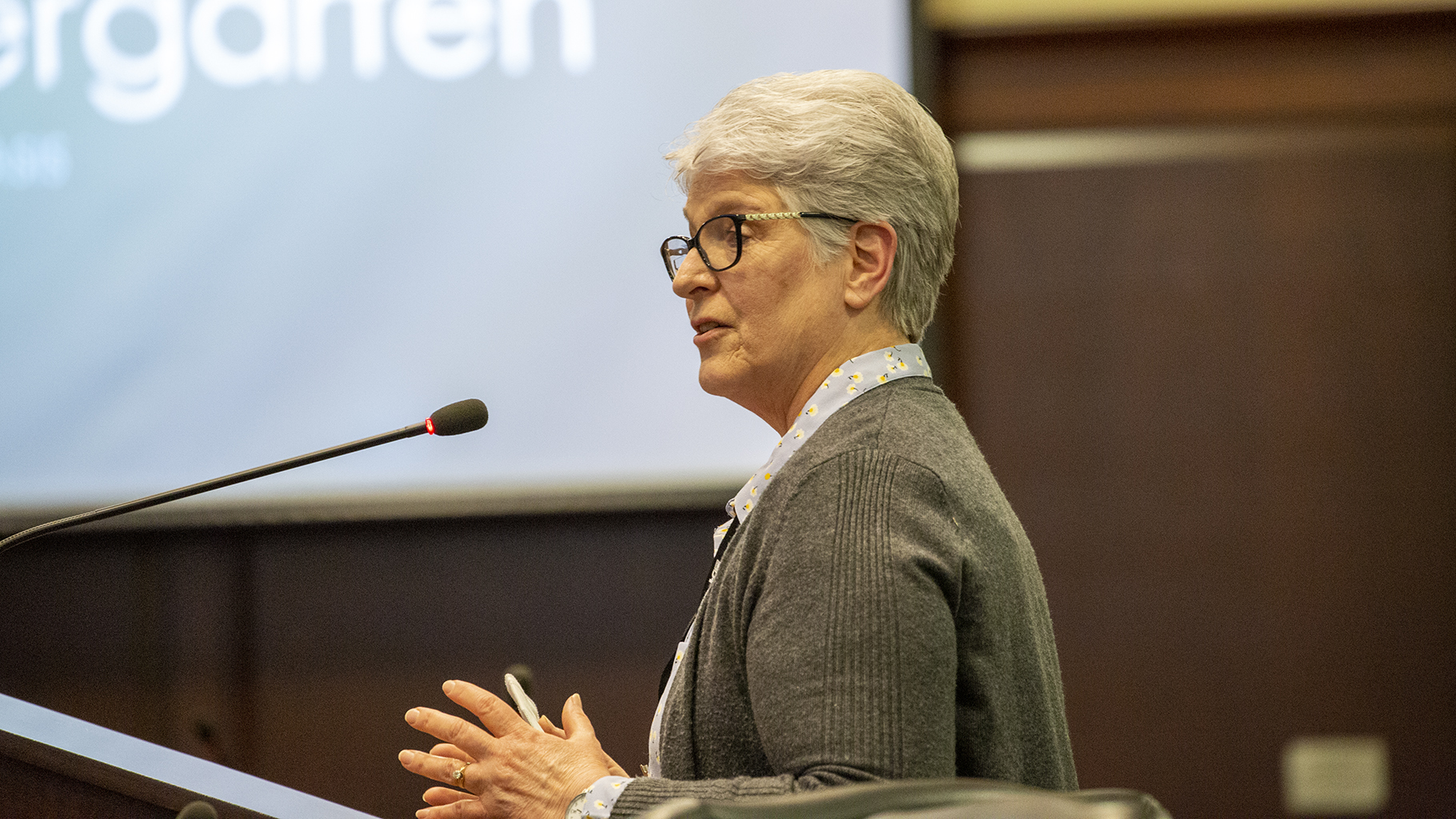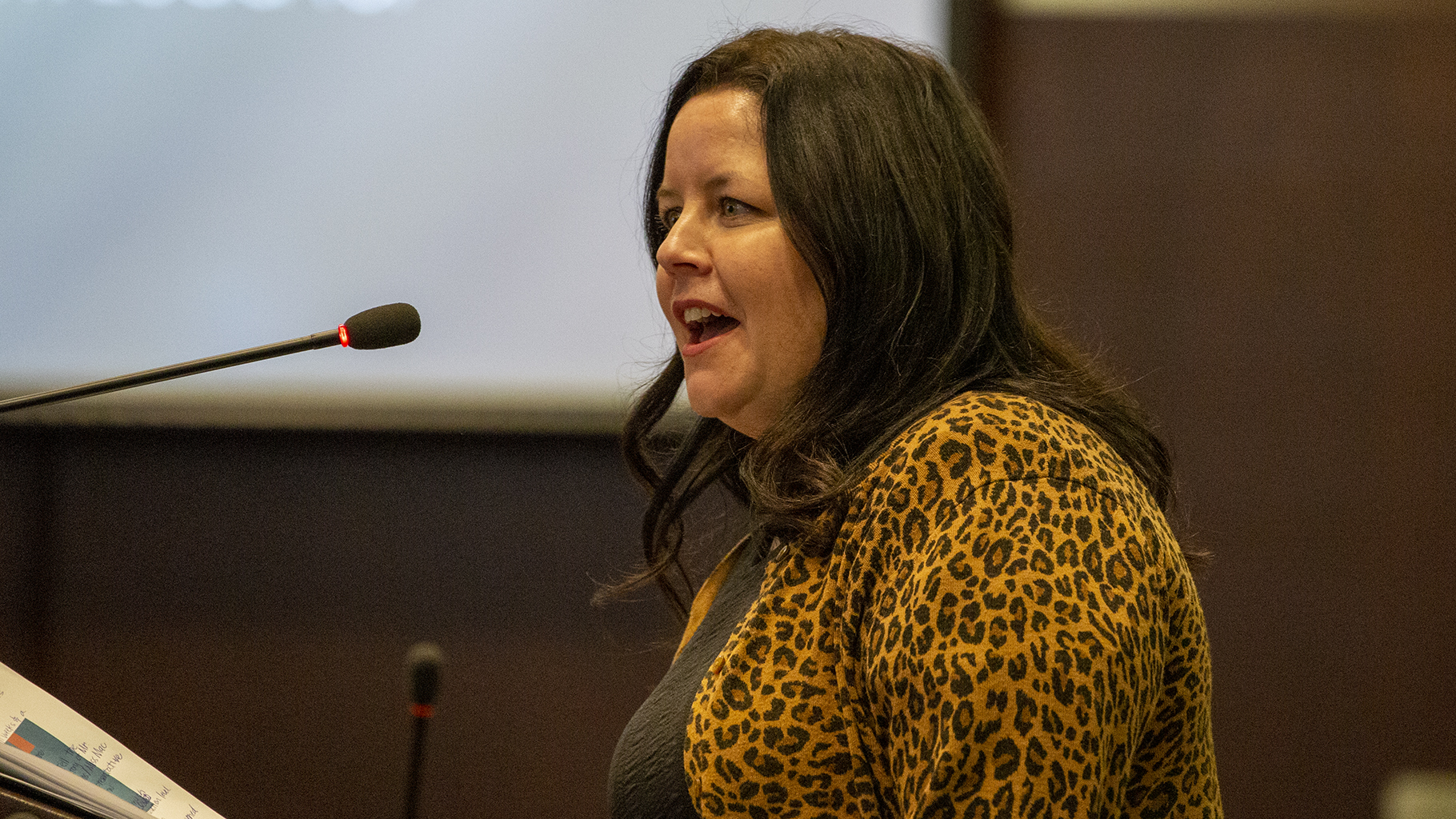All-day kindergarten has ample allies in the Statehouse.
However, there’s a big difference between supporting a concept and passing a bill.
This explains why — as the calendar creeps toward March, and legislators’ minds drift to adjournment and elections — all-day kindergarten has seemingly gone nowhere this session. No all-day kinder bill has even gotten a full-blown committee hearing this session.
That could change Monday afternoon, when the Senate Education Committee could finally take up all-day kindergarten legislation.
That’s a late start, but there’s still time. Legislative leaders hope to adjourn by March 25— an aggressive but not impossible target date, largely driven by the looming May 17 primary election. Three weeks is plenty of time to push through a bill establishing state-funded all-day kindergarten. The Legislature can move quickly on big issues, especially in the final days of a session.
The biggest enemy of all-day kindergarten isn’t the calendar.
The big problem is that all-day kindergarten is a concept, and it means different things to different people in the Statehouse.
To Gov. Brad Little, all-day kindergarten is one way to improve Idaho’s troubling early reading scores — not the only answer, but part of the answer.
Other advocates say the increased class time yields other dividends, such as socialization.
Others see a bottom-line benefit. If the state doubles down, instead of just paying for half-day kinder, schools will be able to offer all-day sessions without charging tuition or collecting supplemental property tax levies.
Come Monday, Senate Education will have three kindergarten-related bills on its agenda, Chairman Steven Thayn said Thursday:
- Senate Bill 1314, an attempt to rewrite the way Idaho carves up its literacy budget. Instead of handing out the money based on students at risk — students who score below grade level on the fall Idaho Reading Indicator — schools would receive money based on how many students score at grade level, and how many students make a year’s worth of growth from the fall IRI to the spring IRI. In other words, the reworked formula would reward high-performing schools.
- Senate Bill 1315, a straight-up all-day kindergarten bill. Programs would remain optional. And districts that take state funding for all-day kindergarten would no longer be allowed to put property tax levy dollars into kindergarten.
- Senate Bill 1318, a Thayn bill geared toward parents who keep their kids in half-day kindergarten. These parents would be able to access “evidence-based supplementary materials” to help their kids, or send their kids to optional summer school.
Overwhelmed yet? That’s not all.

Thayn has another bill, Senate Bill 1317, to create education savings accounts for parents who want to keep their kids home from kindergarten, but plan to enroll their kids in first grade. It’s something akin to advanced opportunities for the juice-box set. Thayn, R-Emmett, doesn’t see his bill going anywhere. “I think everybody that I’ve talked to hates this idea, but oh well,” Thayn said Monday, as he launched Senate Education into a wide-ranging discussion of all-day kindergarten.
And wide-ranging it was. Thayn talked at length about his reservations with all-day kindergarten (later outlined in an Idaho Education News Voices piece.) Speaking on behalf of school board members, who crowded into the Statehouse’s largest committee room for their annual lobbying event, Boise school trustee Nancy Gregory implored lawmakers to pass an all-day kindergarten bill. Melanie Coleman — a former Idaho Falls kindergarten teacher, who now works for the Idaho Home Learning Academy — was given 15 minutes to present to the committee. “Please don’t take half-day kindergarten away from me,” said Coleman, the parent of three kids, ages 8, 7 and 4.

That was this week. As for next week, SB 1314, SB 1315 and SB 1318 are in play, Thayn said, “unless the governor’s office has some input that changes the equation.” The bills could come up in committee Monday. But at the end of Thursday afternoon’s Senate Education meeting, Thayn said those hearings could be delayed, at the request of the governor.
Little hasn’t changed his position, spokeswoman Marissa Morrison Hyer said Thursday.
Little has attached his all-day kindergarten proposal to Idaho’s ongoing $26 million-a-year literacy initiative. He has said he wants to add another $46 million to the literacy program — money that schools might or might not choose to use for all-day kindergarten. In essence, Little wants all-day kindergarten without an all-day kindergarten bill.
That might sound as though it simplifies things, but not necessarily.
For one thing, it means the new $46 million would be parceled out just like the state has been spending $26 million a year. Schools would get their money based on how many of their students struggle to read. “That’s really not the way we want to go about this,” Thayn said during Monday’s committee hearing. “I’m afraid we’d have a race to the bottom, if you got more money, the worse you did.”
That’s the formula SB 1314 would change.
And there’s a foundational debate. If the state starts putting its money into all-day kindergarten, lawmakers such as Thayn and Sen. Janie Ward-Engelking, D-Boise, want a clear bill that sets Idaho’s all-day kindergarten policy. “School districts need to know that we’ve made a commitment and that commitment’s going to be ongoing,” Ward-Engelking said Monday.
Sometimes, even popular policies stir up a battle. We’ve seen plenty of examples in the education space this session.
There seems to be widespread consensus about the need to do something for kids with dyslexia, but two competing bills now sit in the House Education Committee.
Lawmakers are on board with Little’s idea to provide Idaho families $50 million in federally funded education grants — but they’re debating about how to pay the administrative costs.
And many lawmakers seem ready to fund all-day kindergarten, but they can’t seem to decide what it should look like.
A member of Senate Education and the budget-writing Joint Finance-Appropriations Committee, Sen. Carl Crabtree is in the thick of all three of these education battles. The Grangeville Republican is sponsoring SB 1314 and SB 1315, two of the all-day kindergarten bills on the agenda for next week.
When Crabtree sees a recent Boise State University survey, which found 68% statewide support for all-day kindergarten, he sees a mandate. So he’s not sure why it’s been such a challenge to get something passed.
“I’m just shocked,” he said Wednesday. “We make a lot of not much. We don’t need to have this much strife, but clearly I’m wrong.”
Kevin Richert writes a weekly analysis on education policy and education politics. Look for his stories each Thursday.
More reading: Sen. Steven Thayn outlines his concerns about all-day kindergarten.
